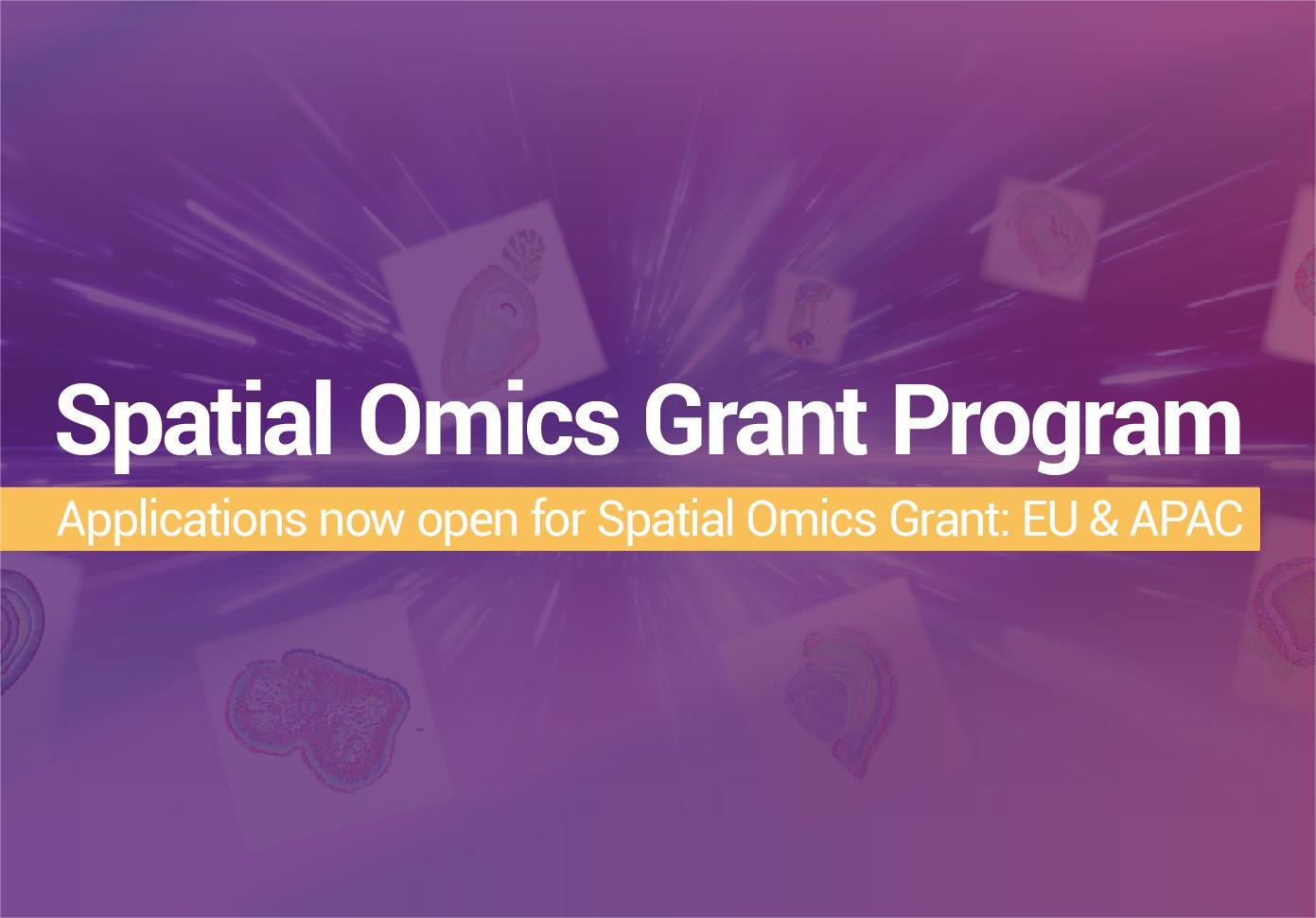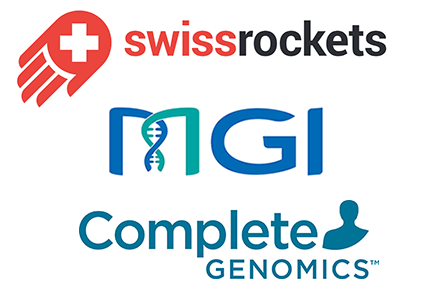WUHAN, CHINA, November 9, 2020 - Hubei’s first vehicle-mounted nucleic acid testing lab, jointly developed by MGI and Wuhan Bus, was officially launched in Wuhan, and meanwhile, a government procurement signing ceremony was held. Liu Changsheng, deputy head of the People's Government of Jiangxia District, Wuhan, Mu Feng, CEO of MGI, and Gao Tao, chairman of Wuhan Bus, signed a tripartite strategic cooperation framework agreement. The “Huo-Yan” mobile PCR lab is equipped with MGI’s automatic equipment and intelligent laboratory management system, with a daily detection capacity of up to 20,000 samples, which will fully guarantee the needs of Wuhan's epidemic prevention and control this winter.
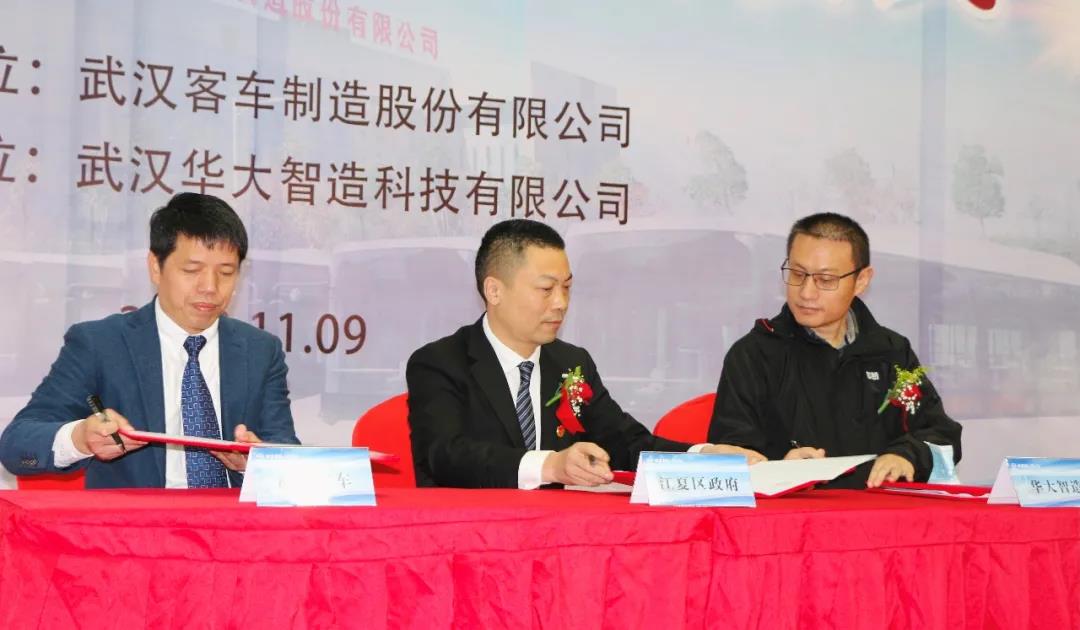
Liu Changsheng (middle), deputy head of the People's Government of Jiangxia District, Wuhan, Mu Feng, CEO of MGI (right), and Gao Tao (left), chairman of Wuhan Bus, signed a tripartite strategic cooperation framework agreement.
Automatic equipment combined with intelligent laboratory management system
Daily Detection Capacity is Up to 20,000
The Wuhan Guanggu® nucleic acid detection vehicle can realize the maximum of 20,000 mixed samples per day and 2,000 non-mixed samples per day. Compared with other similar vehicle-mounted laboratories, MGI’s PCR mobile lab can achieve higher detection capacity, and is compatible with consumables and reagents of different brands.
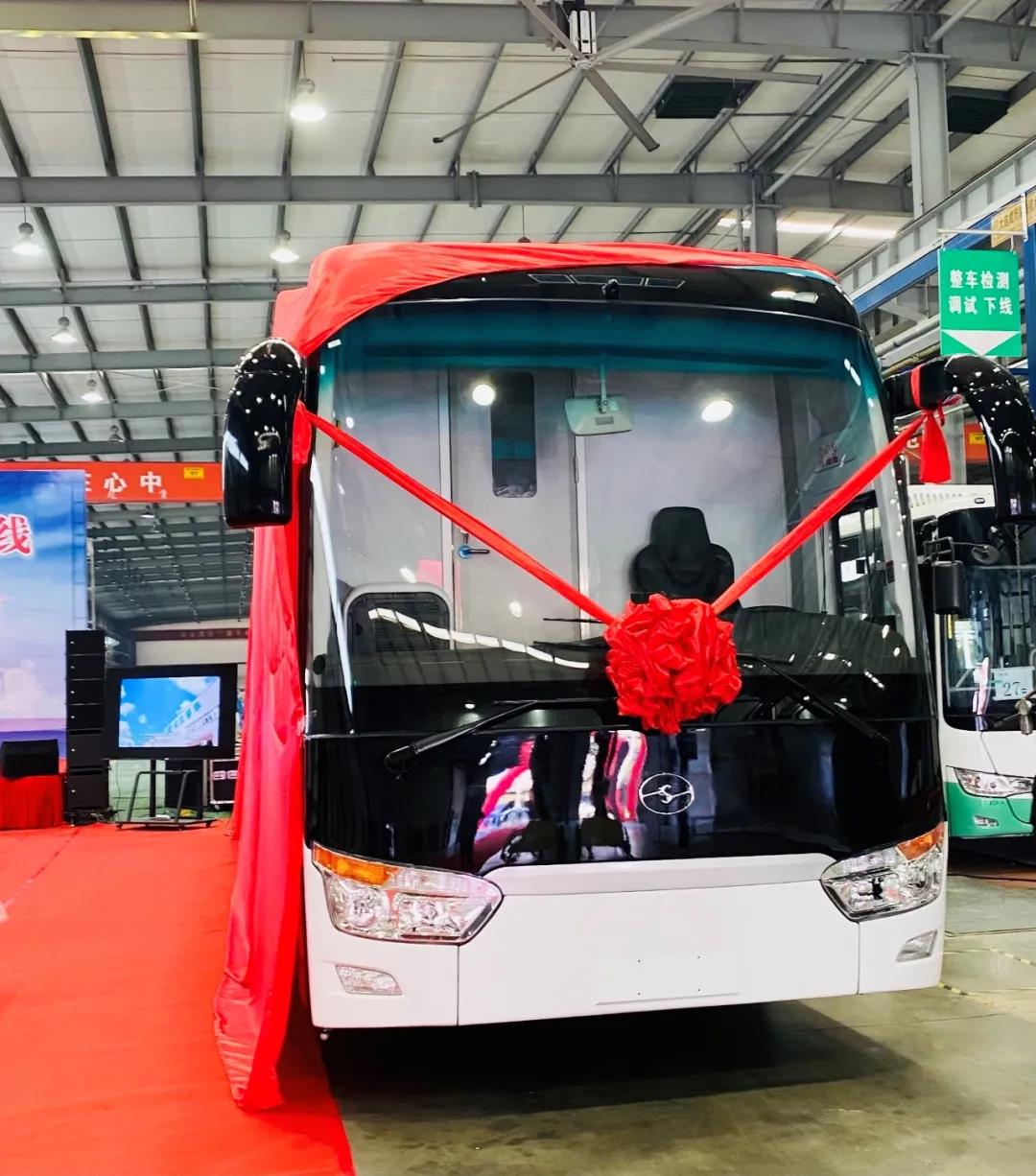
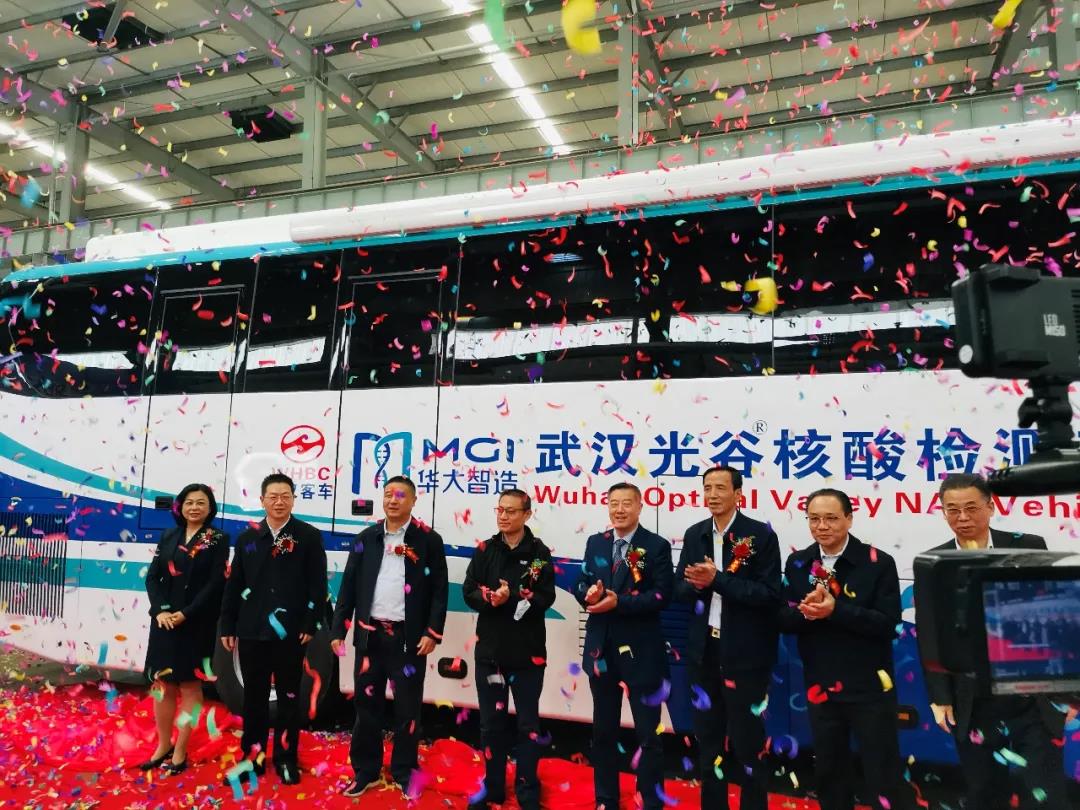
Wuhan Guanggu® nucleic acid testing vehicle was successfully launched
It’s thanks to MGI’s automated sample processing system, fully automated sample transfer processing system, and the information management system, ZLIMS, that the “Huo-Yan” Mobile PCR Lab can carry out rapid and efficient nucleic acid detection. Among them, MGI’s automated nucleic acid extraction equipment MGISP-960, equipped in the vehicle, makes high throughput in small space possible and improves the efficiency of nucleic acid extraction and detection. More than 1000 MGISP-960 have been delivered to over 50 countries and regions around the world.
In addition, combined with the intelligent laboratory management system, MGISP-7000, an automated sample transfer processing system developed by MGI, can realize automatic barcode scan, information check and sample dispatch. It can transfer 192 samples from airtight sample tubes or plain tubes to 96-well microplates in 40 minutes with zero human contact during the process, which helps to decrease tedious sample pre-analytical steps and reduce the workload of lab technicians.
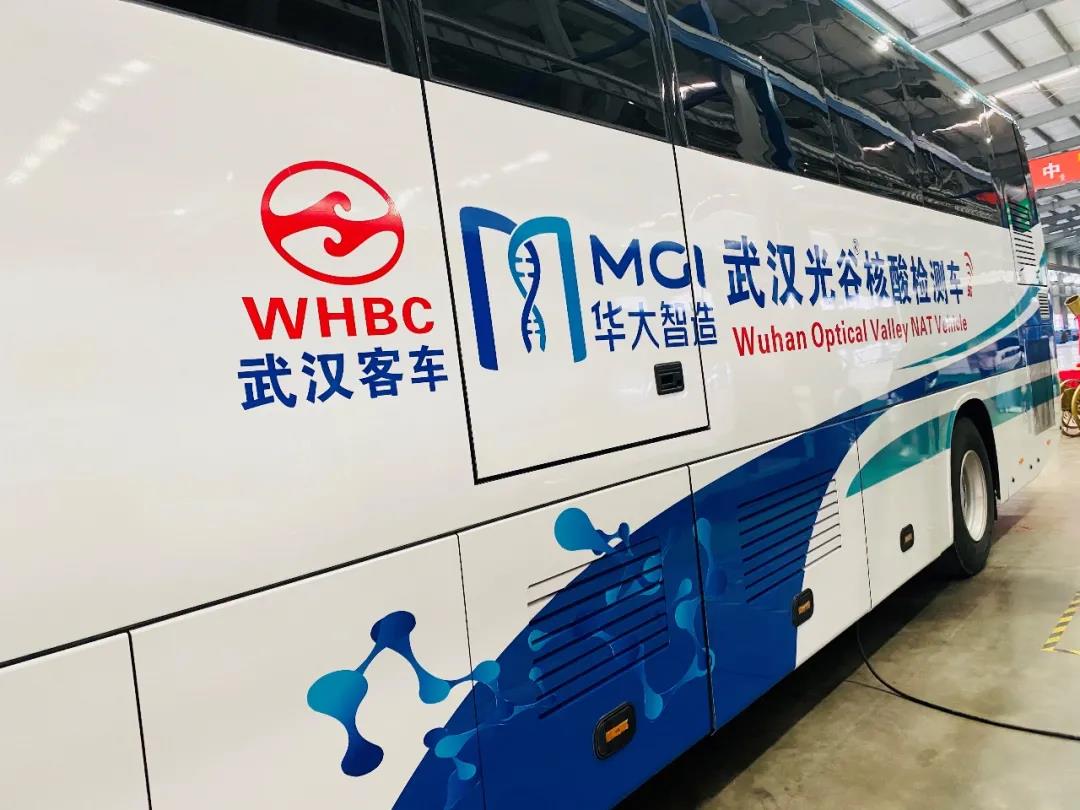
Notably, the information management system MGI ZLIMS equipped in the vehicle, which consists of two parts, an information collection system and a laboratory management system, runs through the entire process. ZLIMS can realize full-cycle management from the information collection, sample preparation, sample dispatching, nucleic acid extraction, qPCR, test results checking. It is suitable for the information management of nucleic acid testing laboratories to realize the interconnection of instruments, reduce manual operation and improve work efficiency. The whole process can also be tracked.
Adapt to complex terrain, safe collision avoidance
Comply with P2 laboratory standards
Compared with the traditional P2 laboratory, the advantages of vehicle-mounted nucleic acid testing lab lie in its flexibility and mobility, which can help to break the geographical restrictions, save manpower and site investment, and is especially suitable for areas with complex terrain. In order to ensure the safe operation and stability of the vehicle, Wuhan Bus has equipped the vehicle with 360-degree panoramic monitoring and safe collision avoidance system. The automatic braking system activates when there is an emergency. With a single press on the button, the car can maintain balance before you run a test.
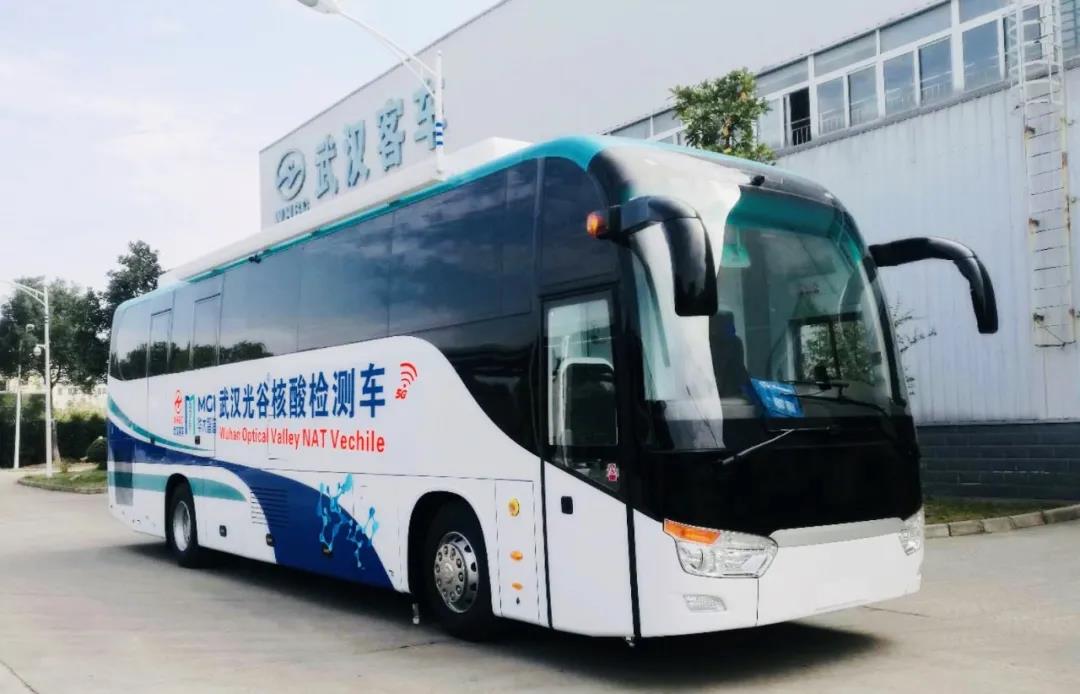
According to the introduction, this mobile, vehicle-mounted P2 level biosafety lab combines with the large-scale bus platform and adopts the negative pressure system and ultraviolet disinfection system. In addition, the vehicle is also equipped with a 5G technology network information system, so that the test report data can be transmitted over the network in time to help epidemic prevention and control.
MGI has successively introduced a wide range of packages, such as integrated automated nucleic acid testing lab, “Huo-Yan” lab in tent, and vehicle-mounted nucleic acid testing lab. And they were officially launched in cities like Chengdu, Chongqing, Qingdao, Ganzhou, Xiamen, Beijing, Hongkong and other places. It can flexibly provide nucleic acid testing services for local people and quickly improve the efficiency of nucleic acid testing and make a demonstration for building a “Chinese model” for the reform of disease control system and the “new infrastructure” of public health.



 Sequencer Products: SEQ ALL
Sequencer Products: SEQ ALL















 Technologies
Technologies Applications
Applications Online Resources
Online Resources Data Bulletins
Data Bulletins Service & Support
Service & Support Global Programs
Global Programs Introduction
Introduction Newsroom
Newsroom Doing Business With Us
Doing Business With Us Creative Club
Creative Club









